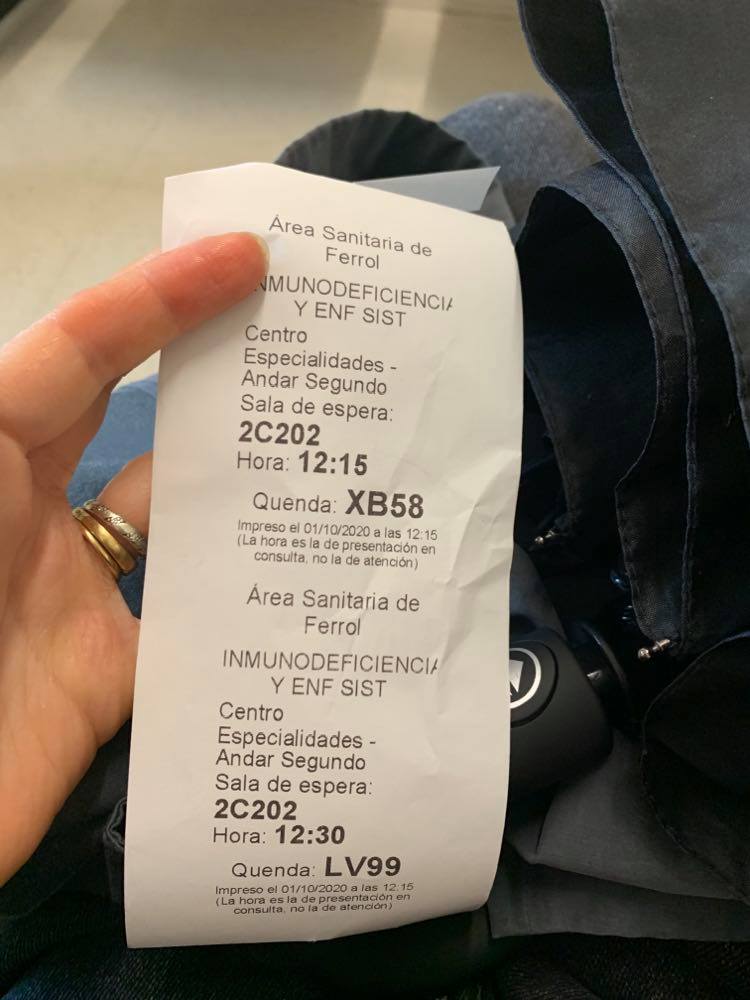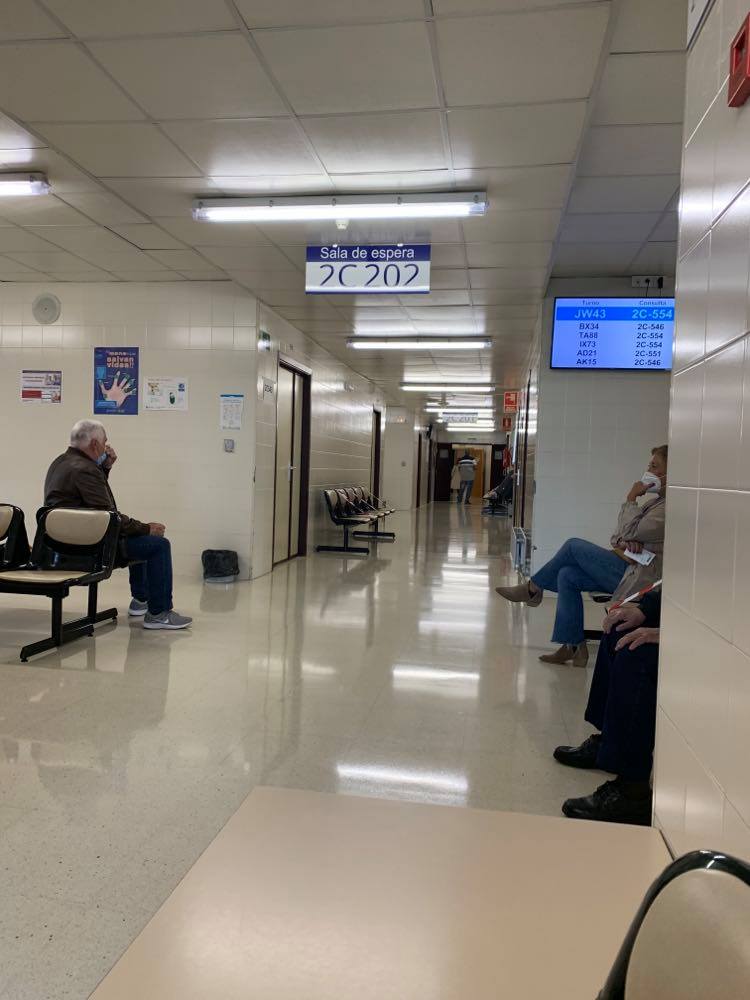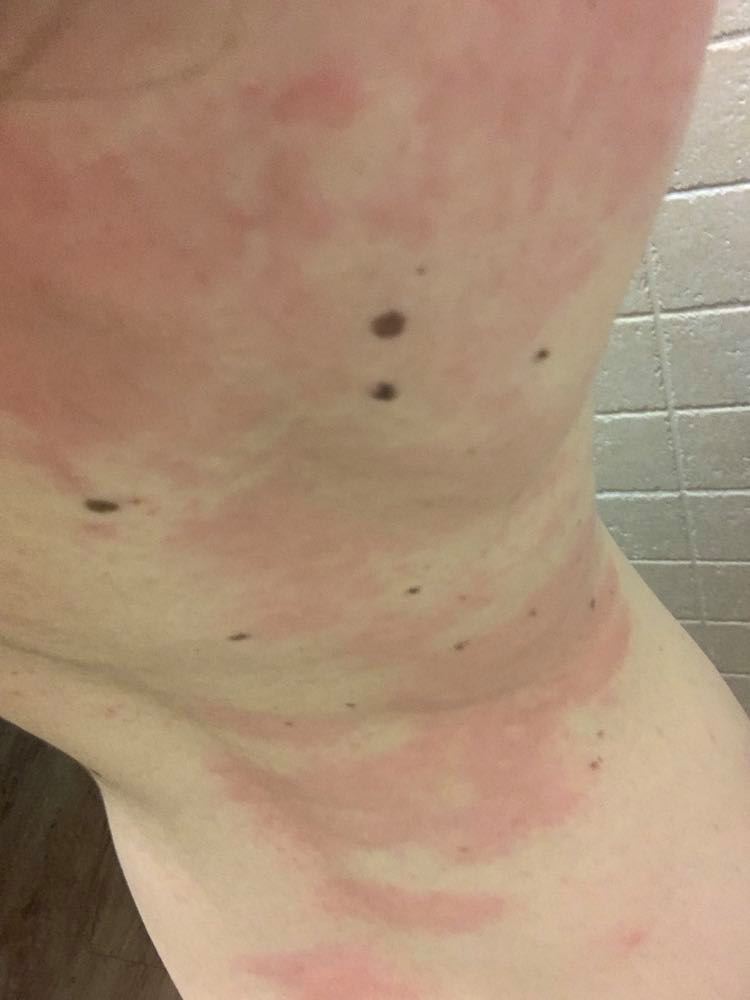“To ‘de-passion’ knowledge”, writes Vinciane Despret, “does not give us a more objective world, it just gives us a world ‘without us’” (2004, p. 131). In this piece, I would like to reflect about us, STS researchers. Bringing the past 2020 joint EASST-4S conference theme’s ‘Locating and Timing matters’ together with the current coronavirus pandemic, I would like to discuss our embodied “significance and agency in the emergence/occlusion of worlds”(Felt, 2020). Usually concealed in the sphere of the ‘private’, ‘quotidian’ and ‘mundane’, I hope to persuade you that your embodied experiences, – always already situated within specific spatio-temporal frames –, matters. It matters, first of all to you/us, being then crucial for establishing inclusive relationships with our colleagues and ‘epistemic partners’, and, ultimately, for re-passioning our discipline(s).
In all its complexities and demands, our academic labour involves examining, analysing, theorising, writing, explaining, lecturing about scientists, scientific theories, technologies, its policy and innovation frameworks as well as biomolecules, microbes, patients, bodies, non-humans, non-western practices and many other elements. That is, these are only a few of the vast and heterogeneous array of elements that populate our work life. Where are ‘we’ in such a populous list of (other) agents, matter, meaning, and worlds in which we dedicate such a substantial part of our lives? The ‘we’ I am interesting in is an embodied ‘we’, a challenging ‘we’, I believe, for many of us. It is challenging because, as academics, we are trained in and we mostly perform a mind-based ‘we’ instead of an embodied one.
Disembodiment
While we deeply study processes of re- and de-naturalisation between science and society, processes of our own bodily des-/re-naturalisations remain largely unspoken. Our own body or ‘bodies multiples’ (physical, spiritual, psychological, social, biological and so forth), particularly at their perceptual, experiential levels, has been what Chris Chilling refers to as an ‘absent present’ (2012) in the humanities and social sciences. This is a striking aspect considering that bodies (gendered, racialised, (dis)able, classed, aged, etc) are a key concern of our wider enquiries about ecologies and socio-technics of worlds, particularly with regards to contemporary biomedicine.
The ‘absent presence’ of our bodies is not only striking; it is also a paradoxical trait of our academic persona with regards to the general consensus within STS against Cartesian dichotomies (subject/object, material/immaterial, nature/culture, rational/irrational). We use the prevalent notions of ‘entanglements’, ‘biosocial’, ‘naturecultures’ and similar material-semiotic companionships and devices as a response to the western precept of the mastery of the mind (read Euro American imperialism and colonialism) over the body (read also non-whites, women, microbes). Yet, in spite of our epistemological registers, I find an evident mismatch between our theories and how we enact them or, to be more precise, why we rarely enact them by bringing them together with our fleshy bodies and lives. Our individual and collective bodies as academic workers, our ‘carnal knowing’ (Sobchack, 2004), are systematically elicited and concealed in our research, partly, as I will elaborate below, as an effect of today’s academic system focussed on ‘outputs’.
A more unpleasant explanation could also be that our bodies and embodied experiences have never been there. Drew Leder (1990) refers to this phenomenon as the ‘absent body’, by which bodies and related motor abilities disappear from conscious awareness, residing in the ‘background’ of experience. Ignored and silenced, we seclude our bodies into our ‘academic (rational) minds’; as if in a proficient ‘habitus’ (Bourdieu, 1977) of disembodiment (mind from body) we had transcended them, as if we were… ‘transhumans’?
To complicate the matter more, the current passage from bodily to virtual working presence in many European countries in response to the pandemic, has surfaced as well as enlarged such chronic disembodied (or mind-based) ‘we’ as individuals, collectives and institutions to unprecedented dimensions. However, instead of holding on to dystopian apathy, we might frame this circumstance as a favourable occasion to reflect on the consequences of concealing or even ignoring our physical bodies and embodied experiences from the knowledge-practices we co-create. And if our embodied beings are the fundamental or primal form of engaging with worlds, it begins with me: my own embodied memories and narratives are a required point of passage for the purpose of this reflection-piece.
Asynchrony
Accumulating exhaustion from the many tasks and increasing demands of academic life, we are now reclaiming slower modes of knowledge-practices making (c.f. Stengers, 2018). Yet, together with our ‘disembodied habitus’, the structural perversity of the web of productivity and success makes it hardly possible to decelerate (for the many, I believe). This, of course, excludes those able to take time (e.g. to publish…fast!). In an inspiring plenary session at the joint EASST/4S Conference 2020, Ulrike Felt addressed this great divide between ‘those who can make time and those who are out of time’ as the ‘real expression of power’ (Felt, 2020). Exclusions, she argued,
“are no longer brought about by depriving people of material resources or denying access to specific places or placing them at the periphery. Rather, exclusion occurs tacitly, to simply making it difficult to hardly possible to be an active part of the same temporal-regime; to be able to synchronise and imposing the emergence of specific technoscientific worlds and not others”
This quote accurately captures a reality experienced by many of us, especially during pandemic/lockdowns and especially for carers (i.e. mainly women). In my case, having my child during my doctoral years in the country with the most expensive childcare of the world (UK), without shared responsibilities or support network, took a huge toll into my postdoctoral prospects. As for the majority of women with family responsibilities, time and dedication can only be fragmentary. Childcare, housework, funding applications, teaching, a bit of research, and back again.
A bitter consequence of discontinuous time is deceiving those colleagues and mentors who support you and your work. Missing deadlines, conferences, missing ‘opportunities’… In brief, not being able to ‘synchronise’. These vicissitudes, along with an unfortunate episode of abuse of power and appropriation in the race for ‘success’, has shrunken my prospects in academia.
In addition, another open secret or taboo that I would like to share is that my identities – women, mother, non-native speaker, precarious early-career– have played a role in my truncated academic ‘projection’. I am, after all, easily ‘disposable’. That is, it is obvious that my ‘profile’ (read life circumstances not cv) impedes me to “keep churning out papers” (Aitkenhead, 2013), top requisite of today’s academia.
Soon after I started confronting these unpleasant realities about my academic career, in early March 2020, I caught Sars-CoV-2, developing its persistent form, what is now known as ‘long Covid’ (Callard & Perego, 2021).
Chronobioinequalities
For the past decade, I have been studying how and the extent to which human microbiome science is displacing older ideas of immunity as a guarantor of biological identity and individuality. One of the key findings of my research has been that while microbial science renders notions of the self as bounded, universal, and autonomous increasingly difficult to maintain, it simultaneously instantiates new forms of difference – particularly ‘immunitary privileges’ based on a higher microbial diversity – and reproduces old ones in terms of neo-colonial practices of bioprospecting biodiversity (Núñez Casal, 2019). Moving beyond current medical humanities and STS work on the microbiome, my latest research develops a feminist critical analysis and embodied methodology that draws attention to lived experiences of health inequalities, the social mobilisation of microbiology and local, traditional and profane healing cultures and practices.
Despite my research being about the entanglements between microbes, embodiment, and inequalities, I succumbed to the Cartesian matrix. Stretched to its limits, my body ‘shut down’ during and long after infection. Defying multispecies conviviality and thus augmenting the current immunitary post-Covid rhetoric, my body was perhaps protecting itself from precarity and exploitation, for all the mistreatment it endured for a long while. Rushing transformed into stillness. As often occurs when we experience illness (Leder, 1990), unable to talk or walk much for months, my body, its physical dimension at least, reappeared back into consciousness.
Among the millions infected with SARS-CoV2– medically categorized as ‘mild’ (Callard, 2020) and thus mostly recovering at home – their vast myriad of mutable and debilitating symptoms often last for several weeks or even months. During the long months of my own convalesce, I observed with a cautious enthusiasm that my individual experiences were part of an emerging and growing collective action around shared experiences of recovering from or living with ‘bodily manifestations’ of Covid-19. I was excited to witness the materialisation of what I call ‘feminist para-ethnographies’, that is, a material-semiotic device of ‘socialised biology’ (Riley, 1983) involving the transformation of silenced and private embodied experiences into shared and collective experiences (Núñez Casal, 2018, 2019, 2021). In confinement, these online support groups, communities and citizen science initiatives were firstly established in Spain, Italy, South Korea, the UK, the US, France, and Finland at the beginning of the pandemic. As occurs with other ‘recalcitrant infections’ (e.g. UTIs) in the absence of appropriate (health)care, dietary changes along with supplements from various medical traditions became crucial elements of online support. They were the only available ways to address the multiple vulnerabilities and inequalities (i.e. healthcare, employment and childcare) experienced by those struggling with ‘long Covid’ at home.
Illness narratives and embodied knowledge have been fruitful feminist methods to challenge scientific objectivity and positivism for decades (Barad, 2007; Blackman, 2012; Haraway, 1988; Hesse-Biber, 2008; Harding, 1987; Smith, 1999). Embodied experiences of bacterial and viral infections, however, have been underexplored aspects in the social sciences and humanities, particularly in relation to multispecies ethnographies and social aspects of Antimicrobial Resistance (AMR) (Núñez Casal, 2019).
Although embodied biographies figure as an indispensable part of the efficacy of more conventional biomedical treatments for illnesses and disorders such as autoimmunity (Anderson and Mackay, 2014), ‘lived experiences’ have been largely devalued in the biomedical understanding of health and disease. Here, Western biomedicine is very ill-equipped compared to the integral or holistic ways of seeing health and disease in traditional and complementary medicine (Mathpati et al., 2020). As such, I believe that the pandemic provides an invaluable opportunity to revert this, co-generating and reclaiming other forms of evidence (e.g. embodiment) and of evidence-making (e.g. lay expertise) as well as different ways of healing.
If, as Felt (2020) reminds us, “we experience time mostly through narratives”, then attending and listening to embodied experiences is a way through which to “render time visible” (e.g. disease progression, recovery, relapses). A helpful example is the high incidence of long Covid in women (Brodin, 2021). Beyond scientific explanations of the role of sex hormones such as oestrogen and other immune determinants, it would not be too adventurous to hypothesise about non-biomedical factors such as the structural inequalities and exhaustion women’s bodies experience (particularly those of the most vulnerable). In other words, being asynchronised produces and reproduces what Didier Fassin calls ‘bioinequalities’ (2009) or, on the other way round, ‘immunitary privileges’ (Núñez Casal, 2019), like racial and ethnic disparities in mortality and vaccination coverage during the pandemic, to name a few.
Becoming inclusive
Against the erasure of data that truncates the linear and seemingly ‘objective’ scientific knowledge production, our role as connoisseurs, that is, as ‘agents of resistance against a scientific knowledge that pretends it has general authority’ (Stengers, 2018, p. 9), is crucial. Yet, becoming connoisseurs, requires careful reflection on our own positionality and its entanglements in knowledge production. It is not only biomedicine that has devalued local and traditional health cultures, including the role of embodied experiences in health and disease. For many of us, I believe, our own situatedness in the West, even if in dissidence, acts as an inherent impediment. The blooming field of chronobiology, for example, illustrates this well. At the back of the growing interest of today’s biomedicine on temporal environments, metabolism and circadian physiology, there are long genealogies of non-Western medical systems and traditions – knowledge systems that have been studying the spatio-temporal dimension of health and disease for millennia such as Indian indigenous systems of health care like Ayurveda – which biomedical and social sciences and humanities research alike often overlook. Importantly, the ecological nostalgia for a traditional or even ‘ancestral’ past articulated around ‘new’ food cultures in the west (e.g. fermentation, wholegrains, fasting and spirituality, etc) is not only about (mostly non-western) local health traditions and belief systems but, crucially, it also entails the consequential role of women in transgenerational health and wellbeing (i.e. unwaged reproductive labour). Our role as connoisseurs demands an effort to learn from or acknowledge at least knowledge-practices and actors beyond our own (gendered) Western precepts and situatedness.
To conclude, our embodied being is “not just a location for society and culture” but “forms a basis for and shapes our relationships and creations” (Chilling, 2012, p. 15). As “having fun, doing something we do well for the sheer pleasure of doing it” (Graeber, 2014), I argue, figures as a form of re-passioning our ‘knowledge-in-practice’ about our ‘bodies-in-action’ (Mol and Law, 2004, p. 51). Bringing embodied experiences to the forefront of our critical analysis (either implicitly or explicitly in our research) would (1) make STS research relevant to wider academic and non-academic publics, as well as (2) open up spaces and paces towards ‘sensible’ (read also sustainable and ethical) knowledge-practices in our disciplinary domains, towards the emergence of (inclusive) worlds, worlds that begin with us.
Acknowledgements
I would like to thank my dearest friend and mentor Niki Vermeulen for being always there, ‘available’, in both the quotidian and the academic. I am very grateful for being synchronised early into Lisa Blackman’s pioneering work on embodiment as well as into Louise Chambers’ pedagogy of the body at Goldsmiths. I am very grateful to Coll de Lima Hutchison, Mahesh Mathpati, and John Porter and our ‘Ksobha’ group. Our embodied conversations, compassionate support and generosity are joyful and nourishing sources of inspiration.
References
Aitkenhead, D., (2013, December 3). Peter Higgs: I wouldn’t be productive enough for today’s academic system. The Guardian. Retrieved from https://www.theguardian.com/science/2013/dec/06/peter-higgs-boson-academic-system?fbclid=IwAR11gjnevdeRVbwHwNDwmmcQ4NfJ_082iJP7mMuY_46M1812LvXxMmwxr78
Anderson, W., & Mackay, I. R. (2014). Intolerant bodies: A short history of autoimmunity. Baltimore, MD: John Hopkins University Press.
Barad, K. (2007). Meeting the universe halfway: Quantum physics and the entanglement of matter and meaning. Durham, NC: Duke University Press.
Blackman, L. (2012). Immaterial bodies: Affect, embodiment, mediation. London, England: SAGE. https://doi.org/10.4135/9781446288153
Bourdieu, P. (1977). Outline of a Theory of Practice. Cambridge, England: Cambridge University Press.
Brodin, P. (2021). Immune determinants of COVID-19 disease presentation and severity. Nature Medicine, 27 (1): 28-33. https://doi.org/10.1038/s41591-020-01202-8
Callard, F., & Perego, E. (2021). How and why patients made Long Covid. Social Science & Medicine, 268: 1-5.
Callard, F. (2020). Very, very mild: covid-19 symptoms and illness classification. Somatosphere. Retrieved from http://somatosphere.net/2020/mild-covid.html/
Despret, V. (2004). ‘The body we care for: Figures of anthropo-zoo-genesis’. Body & Society, 10(2-3), 111–134. https://doi.org/10.1177/1357034X04042938
Fassin, D. (2009). Another politics of life is possible. Theory, Culture & Society, 26(5), 44–60. https://doi.org/10.1177/0263276409106349
Graeber, D. (2014). ‘What’s the point if we can’t have fun?’, The Baffler, 24. Retrieved from https://thebaffler.com/salvos/whats-the-point-if-we-cant-have-fun
Haraway, D. (1988). ‘Situated knowledges: The science question in feminism and the
privilege of partial perspective’. Feminist Studies, 14(3), 575–599. https://doi.org/10.2307/3178066
Haraway, D. (2016). Staying with the trouble: Making kin in the Chthulucene. Durham, NC: Duke University Press.
Harding, S. (Ed.). (1987). Feminism and methodology: Social science issues. Bloomington, IN: Indiana University Press.
Hesse-Biber, S. N. (2008). ‘Feminist research’. In: L. M. Given (Ed.), The SAGE encyclopedia of qualitative research methods, vols. 1 & 2, (pp. 335–337). Los Angeles, CA: SAGE.
Leder, D. (1990). The absent body. Chicago, ILL: University of Chicago Press.
Mathpati, M. M., et al (2020). ‘Population Self-Reliance in Health’ and COVID 19: The need for a 4th tier in the health system’. Journal of Ayurveda and Integrative Medicine
Mol, A., & Law, J. (2004). ‘Embodied action, enacted bodies: The example of hypoglycaemia’. Body & Society, 10(2–3), 43–62. https://doi.org/10.1177/1357034X04042932
Núñez Casal, A. (2021) ‘Feminist Para-Ethnographies: A Proposition for a ‘Critical Friendship’ Between Embodied Experiences and Microbiome Science’. In J.V., Nicholls, E.J. & Denis, F. (Eds.)., Critical Friends and the Choreographies of Care. London Journal in Critical Thought. https://research.gold.ac.uk/id/eprint/29500
Núñez Casal, A. (2019). The microbiomisation of social categories of difference: An interdisciplinary critical science study of the human microbiome as the re-enactment of the immune self. PhD thesis, Goldsmiths, University of London. https://doi.org/10.25602/GOLD.00026597
Núñez Casal, A. (2018). ‘Feminist para-ethnographies: attuning matters of fact and matters of concern in microbiome science’, Fresh Perspectives: Social Research on Antimicrobial Resistance (AMR), The British Academy, London, September 10, 2018.
Shildrick, M. (2002). Embodying the monster: Encounters with the vulnerable self. London, England: SAGE.
Shilling, C. (2012). The body and social theory. London, England: SAGE. Retrieved from http://www.sagepub.com/books/Book235613siteId=sageus&prodTypes=Books&q=9780857025333&pageTitle =productsSearch
Smith, L. T. (1999). Decolonizing methodologies: Research and indigenous peoples.London, England: Zed Books.
Sobchack, V. (2004). Carnal Thoughts: Embodiment and Moving Image Culture. Berkeley, CA: University of California Press.
Stengers, I. (2018). Another science is possible: A manifesto for slow science. Cambridge, England: Polity Press.


